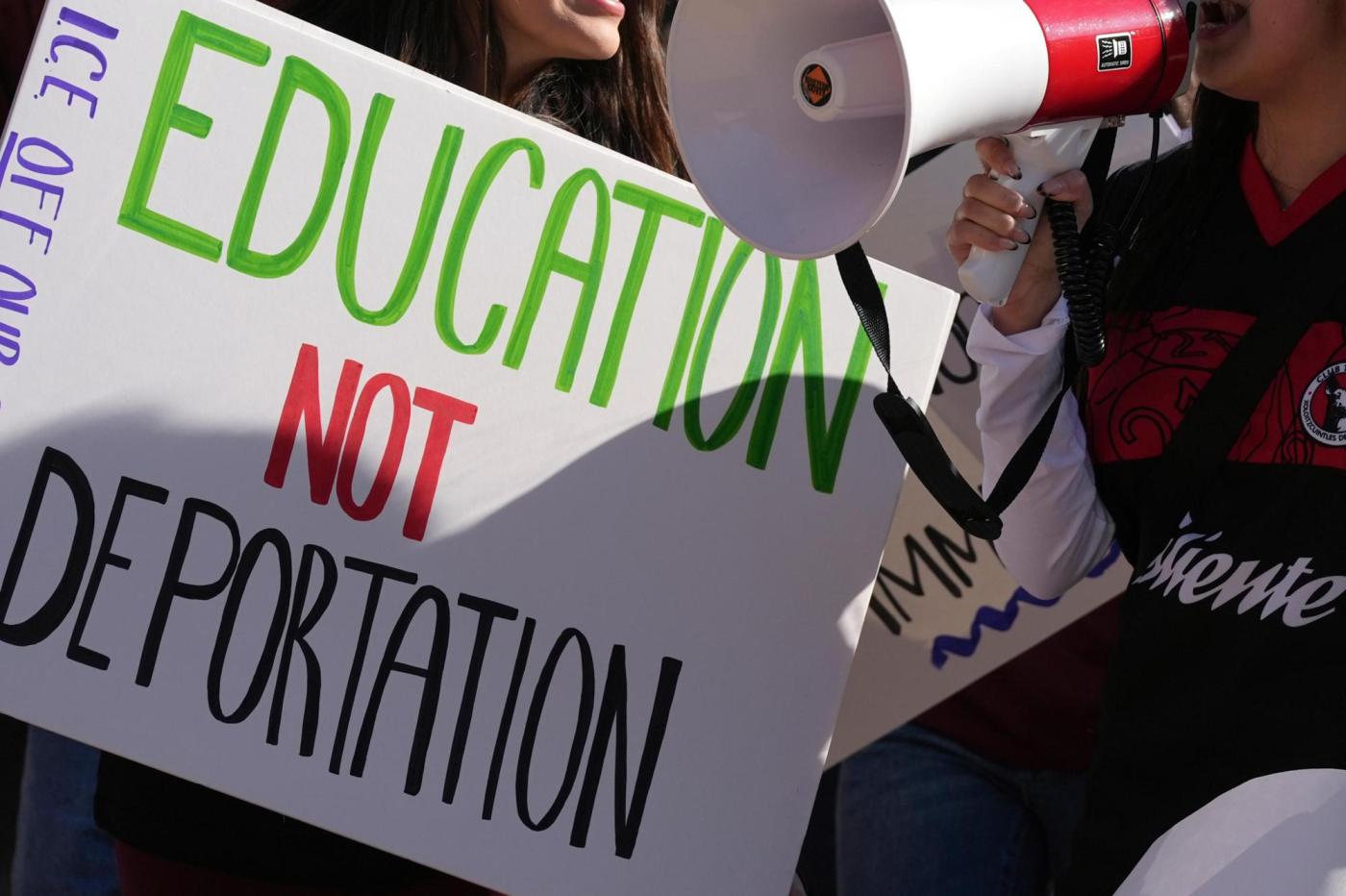
Last month, the Trump administration terminated the legal status of more than a thousand international students studying at U.S. colleges, citing mostly minor interactions with police but often with no explanation. Then, during a federal court challenge unfolding in Oakland, immigration officials suddenly reversed course last week and broadly restored the ability of those students to live and study in the U.S.
At least dozens of students at Bay Area universities abruptly fell back into good standing with immigration agents. But before that twist, a handful of students self-deported and embarked for their home countries to finish classes online. Officials said some students may try to come back.
Broadly, Trump administration officials have encouraged immigrants who break the law to leave the U.S. of their own will or risk arrest and time in an immigrant detention facility.
At De Anza College in Cupertino, two international students returned home last month and will finish their associate’s degree coursework online, said Nazy Galoyan, dean of enrollment services and international student programs. Immigration officials have since restored their legal status, along with all four other De Anza students who were affected by the visa terminations, she said.
Those students will graduate in June, and now, they’re legally allowed to attend their ceremonies and potentially continue their studies at a four-year university in the U.S if they choose to trek back, Galoyan said. That route — starting at a community college and transferring to a four-year campus — is popular in California among international students.
“I hope they can come back to walk,” she said. “That depends if they decide to come back or not. That was taken from them.”
Details on these cases are slim; it’s unclear where these students returned to and why immigration officials revoked their visas in the first place. University officials said individual cases are confidential, and staff and students say a culture of fear has shrouded college campuses in silence, while rumors of immigration raids circulate.
One international student at San Jose State University left the country and “is working to return” now that their visa is restored, said spokesperson Michelle Smith McDonald.
And two students at Diablo Valley College in Pleasanton, another popular community college campus for foreign students, left the country after their visas were revoked, said spokesperson Jennifer Ortega. Immigration officials restored the legal status of all affected international students in the three-campus Contra Costa Community College District, she said.
Trump administration officials originally said their crackdown on foreign students was intended to whisk political activists out of the country, as part of its broad campaign to smother Palestinian activism and what they call antisemitism on campuses in California and beyond.
“If you come to this country as a student we expect you to go to class and study and get a degree,” Secretary of State Marco Rubio, whose department oversees visas, said on April 10. “If you come here to like vandalize a library, take over a campus and do all kinds of crazy things, you know, we’re going to get rid of these people, and we’re going to continue to do it.”
But students who said they weren’t politically active, or hadn’t violated the terms of their student visas, have racked up some victories in courts nationally.
In Oakland, a federal judge has placed a temporary stay on immigration enforcement against international students, one of several nationally, while hearing cases brought by several student plaintiffs. Last week, attorneys for the federal government said they were reversing the visa terminations while officials develop a “framework” to delete students’ legal status.
That’s worrying for Galoyan, who said in an interview that she’s trying to stay optimistic for the sake of international students on campus — who study in the U.S. to bring democracy back to their home countries, she said.